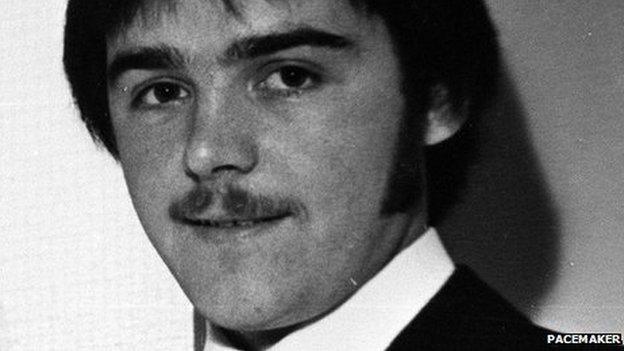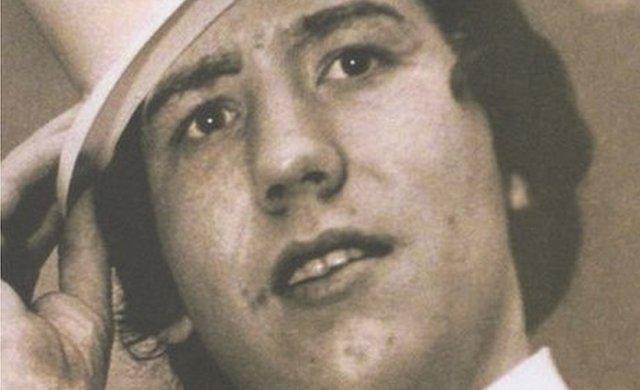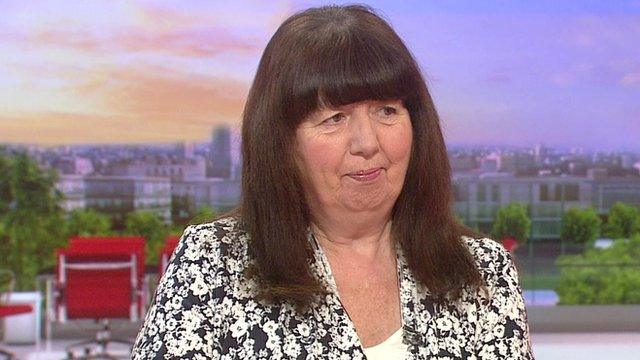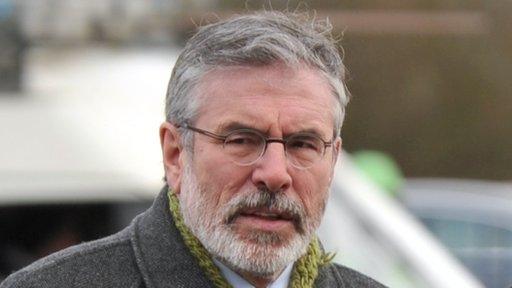The Disappeared: McVeigh and Megraw families speak of pain
- Published
"Justice will be when we get his body back" - Dympna Kerr, sister of Columba McVeigh
Relatives of two IRA victims whose bodies have been missing for nearly 40 years have said finding their remains is more important than justice.
Columba McVeigh and Brendan Megraw were two of the 16 murder victims that became known as the Disappeared.
The victims were abducted, killed and secretly buried by republican paramilitaries during the Troubles.
Mr McVeigh's sister, Dympna Kerr, and Mr Megraw's brother, Kieran, both said remains recovery was their priority.
Ms Kerr said she did not want to know the identity of her teenage brother's killers and said the only thing her family wanted to know from the IRA was where they buried him.
"Whatever else happened doesn't matter, nothing will bring him back," she told BBC Breakfast.
Kieran Megraw said his family's aim was to get the body of his 23-year-old brother back so they could bury him with his loved ones.
'Still searching'
The families spoke to the BBC as police in Northern Ireland continued to question Sinn Féin president Gerry Adams about the murder of another of the Disappeared, Jean McConville.
Mrs McConville's body was found on a beach in County Louth in 2003, more than 30 years after she was abducted from her Belfast home in front of her 10 children. Mr Adams has denied any involvement in her murder.
The widow was among nine of the Disappeared whose remains have been recovered, but seven families are still searching for the bodies of their loved ones, including the McVeighs and Megraws.

Brendan Megraw's wife was expecting their first baby when he was abducted from his Belfast home in 1978
Ms Kerr said she had no interest in politics and had never met Mr Adams, but added: "The only thing that I would ask him, I would literally beg him, to get us the help to find out where Columba is."
Her brother was just 17 when the IRA abducted and murdered him in October 1975.
The teenager, from Donaghmore, County Tyrone, was targeted after leaving his home to go to a shop. His family received no information about his whereabouts for more than 20 years.
Ms Kerr said her late mother had lived in hope that he was alive and would one day return home.
"She still bought him birthday presents, Christmas presents, kept them in the wardrobe for him," she told BBC Breakfast.
'Execution'
Ms Kerr said that shortly after the 1998 Good Friday Agreement, IRA members came to the home of her other brother, Oliver McVeigh, and confirmed that Columba had been killed by their organisation 23 years earlier.
However, she told the programme she felt no ongoing need to see his murderers brought to justice.
"Nothing will undo what's been done, just say where his remains are," she said.
"Justice will be when we get his body back, put it in the grave in Donaghmore, in beside my mum and dad. That's the only justice we need.

Columba McVeigh, a 17-year-old painter from County Tyrone, was abducted and murdered in 1975
"We know how he died, we know what execution is. Execution is the walk to the spot, sometimes they dig the grave, sometimes there is a hole dug for them. They are shot in the back of the head and they fall in. That's execution, I don't need to know any more.
"I don't need to know who had done it, I really, really don't need to know. An organisation has done it and that's fine for me.
"I can cope with that, but if somebody told me the name of who did it, I couldn't cope with that," Ms Kerr added.
Brendan Megraw's wife was expecting their first baby when he was abducted from his west Belfast home in April 1978.
The IRA claimed that he had confessed to being a British provocateur and Military Reaction Force undercover agent.
'Especially difficult'
His brother Kieran told BBC Radio 4's Today programme the Megraw family's priority was to recover his brother's body, rather than to bring his killers to justice.
"I don't know personally who it is," he said.
"For our family, the target is to get his body back from County Meath to Belfast to be buried with his family. At the end of the day, if you go to the family grave, his name is there, but his body isn't there."
He added: "There are still seven of the Disappeared that haven't been found. It never leaves you.
"When things come up in the news, it brings it back to the forefront of your mind, but it's always there. It's especially difficult when you go to the site where he is supposed to be and you can't find him and bring him back home.
"It's the same for the other six families." Mr Megraw said.
Following the 1998 Good Friday Agreement, the British and Irish governments tried to assist the families of the Disappeared, setting up the Independent Commission for the Location of Victims Remains (ICLVR).
The Provisional IRA has admitted responsibility for killing 13 of the 16 victims, while one killing was admitted by the Irish National Liberation Army (INLA).
Information passed to the ICLVR is kept confidential and cannot be used in criminal proceedings.
The ICLVR has received information about both Columba McVeigh and Brendan Megraw and has carried out extensive searches, but to date nothing has been found.
- Published2 May 2014

- Published2 May 2014
